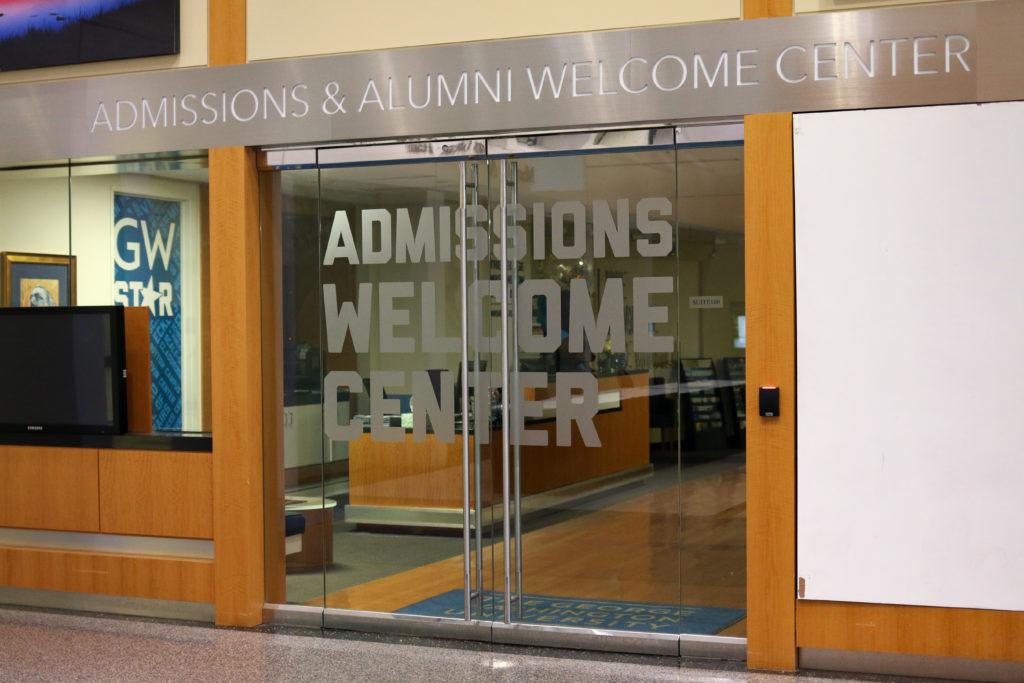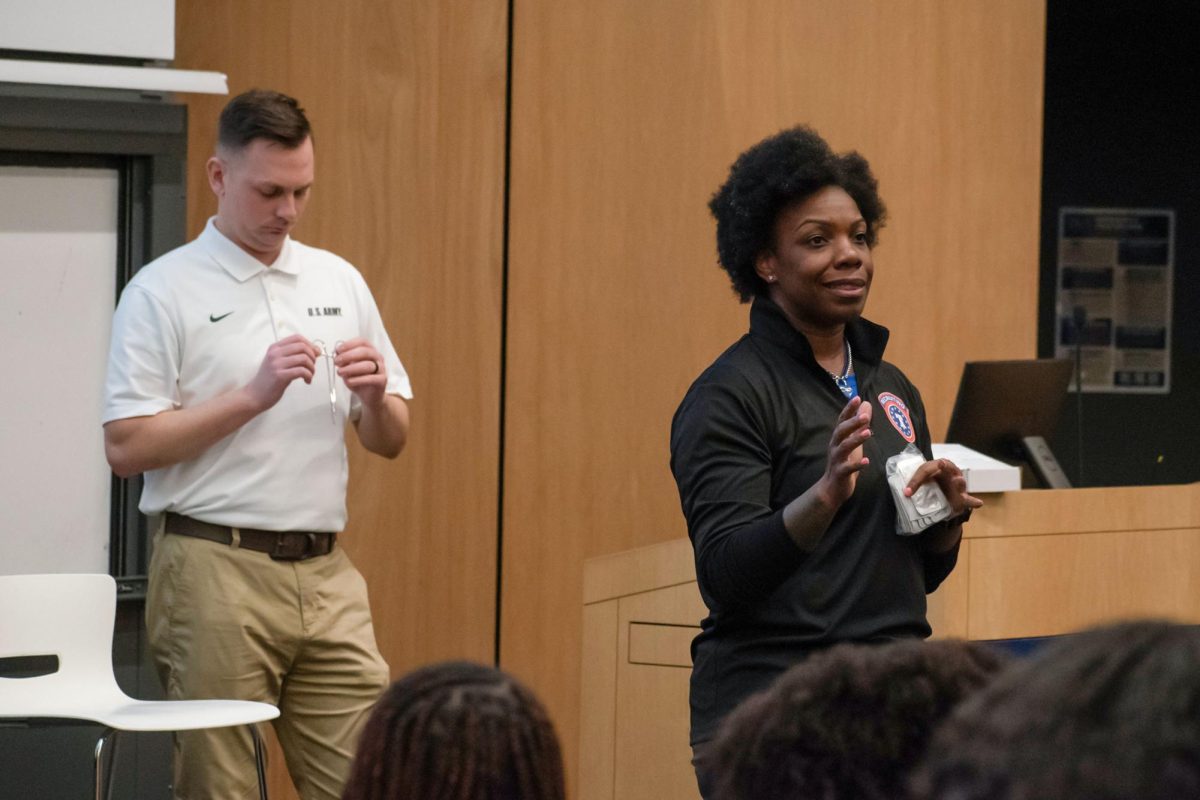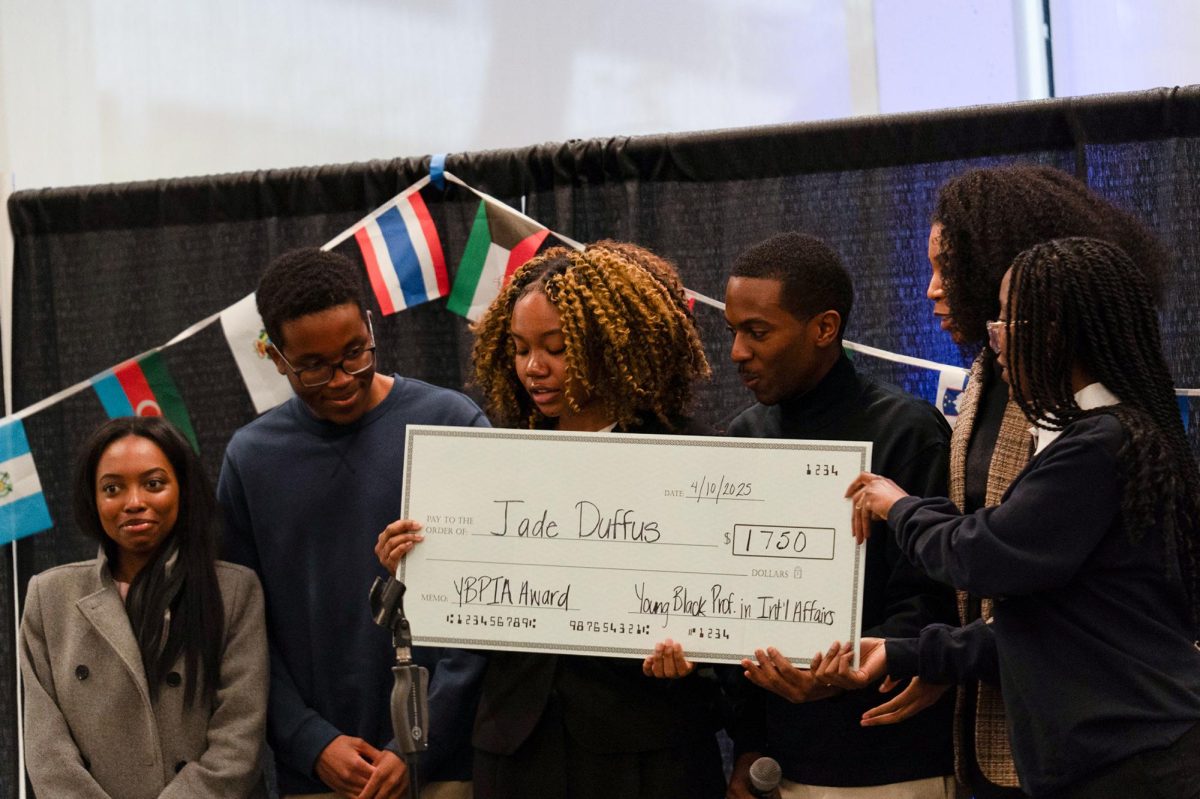Updated: Jan. 11, 2021 at 10:51 a.m.
First-year students enrolled in the Division for Student Affairs’ newest mentorship program said the program has provided them with emotional support as they navigated their first semester of GW.
DSA launched Thrive GW, a mentorship program for first-year students to connect with staff, students and alumni while studying remotely last fall. Students involved in the program said their mentor has eased their transition to GW, and they could lean on them for tips on academics and mental health.
Senior Associate Dean of Students Colette Coleman said the program is intended to create connections for new students who were not going to have a traditional first-year experience. She said guides and students were matched before the academic year started based on academic, career and recreational interests.
Students interested in receiving a mentor can fill out a form to be paired with an alumnus or DSA staff, according to the Office of Student Life website.
“Guides help new students orient to and engage in the GW community and find the necessary support to foster student success,” Coleman said in an email. “In these uncertain times caused by COVID-19, guides serve as trained, experienced and enthusiastic ‘anchors’ to help first-year students feel connected to GW.”
She said guides are expected to check in and meet as a group with students every few weeks and at key points of the semester, like midterms and finals. She said each guide was trained over the summer and leads group activities, which could include sharing academic support resources or biweekly updates of University news.
“Guides have been very creative in their approaches,” Coleman said. “Among these activities have been student care packages, a template for a first year ‘time capsule,’ a monthly GW historical trivia challenge and reflection exercises for students for the fall term.”
Kristin Fahlbusch, an alumna from the Class of 2005, said she “immediately” volunteered to serve as a guide after hearing about the program. She said she received an email in late July from Coleman and Director of Office of Military and Veteran Student Services Andrew Sonn introducing Thrive GW and asking alumni to serve as guides.
Fahlbusch, who mentors two students, said she used to volunteer with DSA during Colonial Inauguration, now known as new-student orientation, as an orientation guide and was excited to “get back into that role.” She said she checks in with her mentees via text at least once a week and makes herself available in case they want to chat.
“I’m in constant contact with my girls,” Fahlbusch said. “They have my cell phone number. They know that they can call or text me anytime with any issues that they’re facing.”
She said she sees herself as a “liaison” for her mentees, responsible for connecting them to resources at school like DSA if they need help resolving any issues related to school or their personal lives. She said although she is not an academic adviser, she helped one of her students last semester after the student had technological issues with recording part of her final foreign language exam.
She said meetings revolve around a theme, like finding student organizations or juggling responsibilities at home and school. She said she’s encouraged her students to remain engaged in the GW community while online by helping them find classes and student groups that fit their interests.
“From the beginning of my students’ Thrive experience, I wanted to make sure that they felt comfortable and had this self confidence and that they were open to the idea of creating and discovering new ways to make friends, connecting with other students,” Fahlbusch said.
Undergraduate mentees in the program said their mentors’ enthusiasm has helped them acclimate to GW from home.
Anissa Ozbek, a freshman majoring in international affairs, said she reached out to DSA in late August after hearing some students talk positively about the program in a GroupMe for students in the Elliott School for International Affairs. She said since her parents did not attend college in the United States, having a mentor to answer questions and empathize with her experience has made her feel more confident navigating school during the remote semester.
Ozbek said her mentor has sent her monthly cards and care packages full of GW merchandise, which she said has been an “exciting” part of the program. She said having her mentor as a person to vent to has made her feel more comfortable and a part of campus even while online.
“Having someone older, that’s an alumnus from GW, has been so great to just hear about their experiences and have someone there to support you that knows what you’re going through,” Ozbek said. “It meant a world of difference.”
Junior Haley Lanford, a transfer student from Northern Virginia Community College, said her academic adviser referred the program to her. She said Thrive GW has given her an opportunity to “decompress” from the stresses of studying online and reach out to someone she feels comfortable with if she needs advice.
Lanford said her mentor has helped her with issues like deciding on which classes to take Pass/No Pass and finding a balance between coursework and Zoom fatigue. She said having a mentor has helped her feel less alone while trying to socialize with other peers online.
“It’s been such a nice way to decompress and talk to somebody who can help navigate if I’m having any problems or help to make decisions about something,” Lanford said.
This post has been updated to correct the following:
The Hatchet incorrectly reported that Fahlbusch’s first name is Kaitlin. Her name is Kristen. We regret this error.








